Are We There Yet?
 for language and rude humor.
for language and rude humor.
Reviewed by: Caroline Mooney
CONTRIBUTOR
| Moral Rating: | Offensive |
| Moviemaking Quality: |
|
| Primary Audience: | Family |
| Genre: | Comedy Romance |
| Length: | 1 hr. 31 min. |
| Year of Release: | 2005 |
| USA Release: |
| Featuring |
|---|
| Ice Cube, Nia Long, Aleisha Allen, Philip Bolden, Jay Mohr |
| Director |
|
Brian Levant |
| Producer |
|
Revolution Studios Matt Alvarez Ice Cube Dan Kolsrud |
| Distributor |
“24 hours. 350 miles. His girlfriend’s kids. What could possibly go wrong?”
Sequel: “Are We Done Yet?” (2007)
When Nick Persons (Ice Cube), a well-know bachelor, ladies-man, and despiser of children sees Suzanne Kingston ( Nia Long) for the first time, it’s love at first site-at least for about 15 seconds, or as long as it takes for him to see that she has two children.
Unable to resist the beautiful and kind Suzanne, Nick throws caution to the wind; he’s willing to do just about anything to get her attention. In one glorious heroic moment, Nick volunteers to bring Suzanne’s two children, Lindsay (Aleisha Allen) and Kevin (Philip Bolden) to meet her in Vancouver where she is working during New Year’s weekend, a favor that would prevent this single mother from losing her job.
After a series of mishaps involving planes and trains, the unlikely threesome is forced to drive the 350-mile stretch. Oh, and did I mention that Nick is driving his brand new Lincoln Navigator, complete with spinning hubcaps? The evolution of the car, at least its condition, is one of funnier parts of the film.
Instead of giving you a blow by blow description of the crazy antics you might expect from two children who believe that no man is good enough to date their mom, and that somehow their mom and dad are going to magically get back together, I’ll let you use your imagination; I promise it won’t be a stretch. Rather, what I will talk about is the misuse of the words “family movie.” But first, I do have a few positive words.
Positive Elements
Originally, I planned to take my children with me to the theater, but it just didn’t work out, and I’m now glad that it didn’t—although there are several positive qualities in the film.
Suzanne is a loving, conscientious and devoted mother. She cares about her children, and she doesn’t want them to become attached to the wrong sort of man. She is concerned about the influence and modeling affect Nick might have on her children, and she makes this clear to Nick.
Nick, despite his shameless ogling of women, treats Suzanne with respect.
The film displays no overt sensuality. The film seems to promote abstinence in a dating relationship, and I’m not just talking about sex. Nick and Suzanne don’t even kiss until the end of the movie. Everyone keeps their clothes on and their hands to themselves.
Nick comforts the children when they discover their Dad lied about being sick to avoid visiting with them over the holiday. Nick explains to the children that it isn’t their fault, and then he shares with them his own experience of his father leaving home when he was a boy. The film deals with deserter parents in a positive way, reinforcing to the children of divorced homes that it isn’t their fault when a parent abandons them.
But despite these redeeming elements, “Are We There Yet?” is no family film, at least not in my opinion. Sadly, what could have been a predictable, but enjoyable movie for the entire family was tainted with foul language, and not so subtle sexual innuendos. Beginning with the opening song, one of Prince’s sensual ballads, the lyrics “I wanna be your lover” set the stage for the film. From there, while the credits are still rolling, the family movie fantasy dissipates.
Issues of Concern
Overall, the offensive nature of “Are We There Yet?” can be summed up into four main categories: language and attitudes, vulgarity, conflict, and sexual innuendos. Additionally, there is a fighting scene at the end of the film, but no one gets hurt, and it’s more silly than serious.
Language and Attitudes
In addition to the word d*mn, which is used by Nick on several occasions, what bothers me the most is the use of gutter-type slang terms such as “sucker,” “fart,” and “horny”-and these words come from the lips of children. In addition, the two children continuously antagonize each other with name-calling. With such ridiculous fighting and verbal-abuse (“stupid,” for example) going on 24/7, only a movie character could tolerate such nonsense.
As if the language isn’t bad enough, the children’s blatant disrespect for authority is equally appalling. Now I realize that people want to be entertained, and that the writers and director of the film most likely feel the need to exaggerate or inflate incidents to make people laugh, but the children’s exploits, their words and actions, are overdone, making them seem spoiled and disrespectful. Whether the children like Nick or not, he is helping their mother and he deserves respect.
Lastly, and relevant to the poor attitudes displayed in the film, is the theme of women-as-sex-objects. Nick thinks he’s in love, but he’s really in lust. To their credit, the children seem to know that Nick is only interested in their mom because she’s pretty. During one scene, when Suzanne is getting into Nick’s car, he makes a subtle reference to her breasts. Nick makes no attempts to hide his appreciation of a woman’s body, but we know nothing of his appreciation for a woman’s mind.
Vulgarity
Much of the vulgarity is covered in the above section on language and attitudes, but there is one particularly distasteful scene in which the younger brother urinates in a lady’s bathroom sink. As if this isn’t enough, a woman comes out of a stall, sees what’s going on, and begins hitting Nick, who’s holding Kevin up to the sink. Nick turns around, and Kevin urinates all over the woman. In another scene, the children gang up on Nick, lock him out of his car, and call him a “dirty, horny, sex-man.”
Conflict
Most of the film’s conflict revolves around a tumultuous brother-sister relationship, where the children fight constantly, and threaten to tattle at every opportunity, and their relationship with Nick, which until the end of the film is deliberately antagonistic and disrespectful, costing him his brand new Navigator. Even though we can understand the children’s intent, to drive away all men so that their mother and father can get back together again, their “zany” actions and disrespect for authority in real life would have serious consequences.
Sexual Innuendos
Referencing women as sex objects, sometimes and sometimes not so subtle, is mentioned above, but there is one specific scene I want to point out. When Nick goes to pick up the children to take them to the airport, Miss Mable (Nichelle Nichols), the trusted babysitter, attempts to seduce Nick. Her sexually provocative words, in essence, suggest that he should dump Suzanne, and take up, instead, with an older woman like herself.
Conclusion
Despite the positive elements of the film, the foul language, the blatant disrespect towards authority, the women-as-sex-objects theme, and the both subtle and not so subtle sexual innuendos make this film, in my opinion, unsuitable for family viewing. Most likely, young children won’t understand the sexual innuendos, but the poor example of a sibling relationship, even in light of the underlying problem of parental abandonment, and the over-exaggerated disobedience and disrespect modeled by the main characters of this film serves to reinforce a positive outcome for behavior I wouldn’t tolerate from my own children.
Sadly, the producer and leading actor of the film, Ice Cube, neglected to really consider the needs of families. The use of foul language, inappropriate attitudes, and sexual connotations is strictly gratuitous, and it robs the film of its potential family-styled quality. In the case of this film, “the ends,” that is the warm-fuzzy happy ending, “do not jusify the means,” the literal road we travel to get there.
Violence: Minor / Profanity: Moderate / Sex/Nudity: None
See our review page on the sequel to this film: Are We Done Yet?


I nevertheless decided, reluctantly, to take him anyway on friend’s recommendation. I reminded him both before and after the movie that it is important for children to treat adults with respect, and to not behave as these children did in the movie. All that being said, overall I thought this was a decent movie and I did not regret taking my son.
Many of the reviewer’s comments are well-taken, but reading the review gave a much more negative tone than I got out of watching the movie, and I’m typically conservative about my movie choices both for my kids and when my wife and I go. The one thing I especially watch for in Hollywood films are attacks on Christianity, since many of them are not so subtle in this.
I didn’t catch this in this film, other than a very subtle one regarding the babysitter heading to Las Vegas with a church group.
It also did not have the usual homosexual agenda, or the subtle millions of years and evolutionary doctrine that so many “family” movies have. The negative aspects regarding some sexual innuendos and a few cuss words are why I only rate this an average on the morality scale. Not that I’m justifying this, but to put it in to proper perspective, the cuss words were soft (a couple of d-ms), and the few sexual innuendos would not be picked up by a child. I would recommend this to families, but to exercise caution and talk with your kids after the movie about giving proper respect to adults.
Average/3½
The character that Ice Cube played had absolutely no respect for women at all. The way that he kept leering at this woman’s breasts was disgusting. He needed a good slap across the face. There’s another horrible scene when he sees the children’s mother for the first time and the camera zooms in for several close-ups on the womans breasts. In this scene she’s portrayed as a piece of meat. This is like a MTV rap video scene. All of you parents should know what I’m talking about.
With all of the yelling and disrespectful attitudes on the part of all the characters, I came out of the movie with a terrible headache. I consider myself a fairly liberal Christian, but this movie takes the cake. It’s not worth your time.
The film was full of degradation to women, children, family, love, the list goes on and on… It even degraded men, because it represented men as pigs (the world’s view.)
The word needs to be put out about how offensive this movie is, not only to Christians, but to any family that cares about any sense of morality. I can’t believe Hollywood would even attempt this one.
Something positive—We got a credit from the theater manager to see another movie at our convenience. Glad I found your site. I’ll check here before I see anything else.
Extremely Offensive/4
Better than Average / 3½
Good / 4
Better than Average/1½
Average/3
Better than Average/3½
Good/4
Very Offensive/2½
Better than Average/4
Better than Average/4
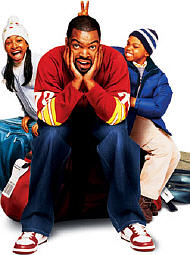
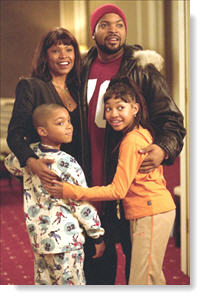
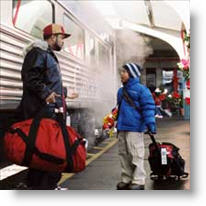
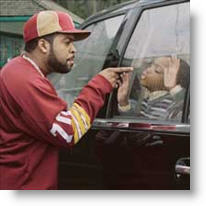
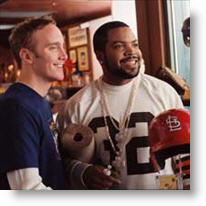
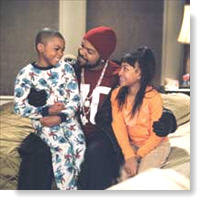



My Ratings: Average/1½